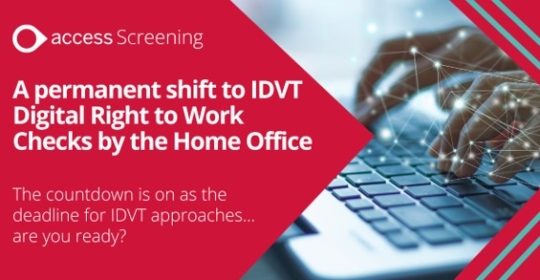IR35 is back in the news and on the press and so we wanted to bring you a series of updates to keep you updated. Changes in regulation come with upheavals to working practices and how agencies interact and engage with talent which in turn bring their own challenges. We’re dedicated to helping the recruitment sector and that means keeping you ahead of the curve and constantly compliant. So let’s dive in…
A quick reminder; what is IR35?
IR35 was initially introduced as a means to combat tax avoidance by contractors and workers supplying services to employees outside of permanent employment in the public sector. Previously the responsibility to stay compliant lay solely with the contractor, however, in April 2017 this shifted to the hiring originators, hugely impacting the practices of agencies.
So, what happened?
A report published by HMRC in 2018 found that the majority of agencies reported no changes to their ability to fill contractor vacancies. There remains some confusion around the tools offered by HMRC and defining who falls within IR35 status remains confusing with 22% of people claiming that the tools are ‘not at all helpful’ in understanding who is compliant. 60% of central bodies also reported that with the changing legislation time spent on administration has significantly risen. In short, nothing much has changed but there’s definitely more paperwork.
What’s the latest news?
As of next year, April 2020, the government is targeting the private sector, aiming to increase compliance and ensure that the rules are being followed and IR35 is operating as intended. These changes will impact recruitment agencies who supply workers to the private sector through intermediaries such as Personal Service Company (PSC). In short, this is no longer just about public sector, but also private sector, and so recruiters are going to have to widely expand the scope of their compliance.
HMRC are doubling down in their efforts to enforce this legislation as they estimate that only 10% of people working as contractors and ‘off payroll’ employees are applying the rules properly. The cost of non-compliance within the private sector continues to grow and according to HMRC, will reach an estimated £1.3 billion by 2022.
What are the key points I need to know?
- As of 6th April 2020, the responsibility for assessing who falls within IR35 will move from the individual to the end client. In short, whoever pays the fee to the contractor will be responsible for deducting the relevant tax and NI contributions. As recruitment agencies placing contractors into roles with your clients, that responsibility will fall on your shoulders.
- The updated legislation and new rules will only apply to ‘medium and large businesses’, therefore small businesses don’t apply. To be classified as a small business your organisation must meet two or more of the following requirements:
- Turnover less than £10.2 million
- Balance sheet less than £5.1 million
- No more than 50 employees
- Small businesses will be exempt from these new changes in April 2020, meaning that workers engaged in contractors with ‘small businesses’ will remain responsible for determining IR35 and not the client.
- Any workers or contractors that fall inside IR35, the PAYE and NI contributions will have to be deducted at source from their income by the ‘fee payer’, i.e. the recruitment agency or end client.
- End clients and agencies are advised to communicate to the worker the IR35 status of their assignment.
- The fee payer will carry the liability, so in this case, the recruitment agency.
How do I know who’s inside and who’s outside IR35?
In a nutshell:
Inside IR35 are contractors who should be paying employed levels of tax.
Outside IR35 are contractors who can pay themselves a combination of salary and dividends which can be more tax efficient.
What do I do now?
As a recruitment agency you will have to make IR35 determinations on any flexible workers you engage from April 2020, whether in the public or the private sector. This includes any contractors you have in place that will continue after April 2020. HMRC has made it clear that the responsibility falls on the agencies and they must take ‘reasonable care’ to ensure that they’re doing everything they can to make sure the documents you send to HMRC are accurate and true.
For further information on IR35 and how Access Group can help you stay compliant read our fact sheet 'Are you ready for IR35'.









